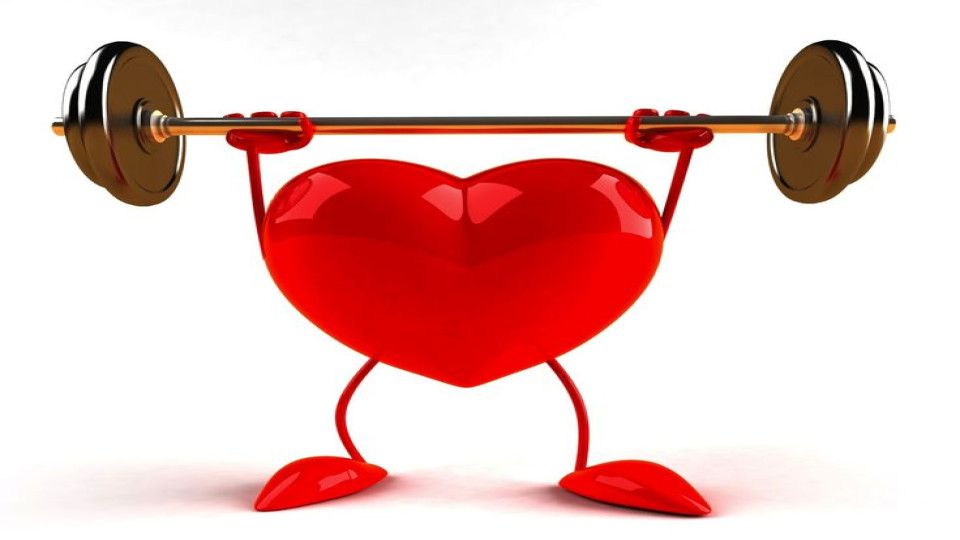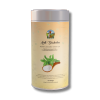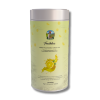

10 Superfoods for a Healthy Heart: Keep Your Heart Happy and Strong
Heart disease is one of the leading causes of death worldwide, affecting millions of people every year. However, you can reduce your risk of developing heart problems by eating a balanced diet that includes foods that are good for your heart. These foods are rich in nutrients that can lower your blood pressure, cholesterol, inflammation, and oxidative stress, and improve your blood flow and heart function. In this blog, we will introduce you to 10 superfoods that are beneficial for your heart health and explain how they work. Let’s get started!
1. Oatmeal
Oatmeal is a whole grain that contains soluble fiber, which can prevent your body from absorbing cholesterol and lower your LDL (bad) cholesterol levels. Oatmeal also has antioxidants, minerals, and phytochemicals that can protect your arteries from damage. Studies have shown that eating oatmeal regularly can reduce your risk of heart disease and stroke. You can enjoy oatmeal for breakfast with fruits, nuts, or milk, or use it to make muffins, cookies, or granola bars.
2. Oranges
Oranges are a great source of vitamin C, which is a powerful antioxidant that can fight free radicals and prevent oxidative damage to your cells. Vitamin C also helps to produce collagen, which is a protein that strengthens your blood vessels and prevents them from becoming stiff and narrow. Oranges also have potassium, folate, and flavonoids, which can lower your blood pressure and improve your blood flow. You can eat oranges fresh, squeeze them for juice, or add them to salads, smoothies, or desserts.
3. Beans
Beans are legumes that are high in protein, fiber, and complex carbohydrates, which can keep you full and satisfied for longer. Beans also have phytochemicals, such as saponins, phytosterols, and flavonoids, which can lower your cholesterol and triglyceride levels and prevent plaque buildup in your arteries. Beans also have magnesium, potassium, and folate, which can regulate your blood pressure and prevent blood clots. You can eat beans as a main dish, such as chili, soup, or stew, or as a side dish, such as hummus, dip, or salad.
4. Spinach
Spinach is a leafy green vegetable that is packed with vitamins, minerals, and antioxidants that can benefit your heart. Spinach has vitamin K, which is essential for blood clotting and bone health. Spinach also has vitamin A, C, and E, which can protect your cells from oxidative stress and inflammation. Spinach also has folate, iron, calcium, and magnesium, which can lower your homocysteine levels, a risk factor for heart disease, and improve your blood flow and oxygen delivery. You can eat spinach raw, cooked, or blended in smoothies, salads, soups, or sandwiches.
5. Salmon
Salmon is a fatty fish that is rich in omega-3 fatty acids, which are essential for your heart health. Omega-3 fatty acids can lower your triglyceride levels, raise your HDL (good) cholesterol levels, reduce your inflammation, and prevent arrhythmia, a condition where your heart beats irregularly. Salmon also has protein, selenium, and vitamin D, which can support your immune system and bone health. You can eat salmon grilled, baked, or smoked, or add it to salads, pasta, or sushi.
6. Olive oil
Olive oil is a healthy fat that is derived from olives, a fruit that grows on the olive tree. Olive oil has monounsaturated fatty acids, which can lower your LDL cholesterol levels and increase your HDL cholesterol levels. Olive oil also has polyphenols, which are antioxidants that can prevent oxidative damage and inflammation in your arteries. Olive oil also has vitamin E, which can protect your cells from free radicals and improve your skin health. You can use olive oil for cooking, dressing, or dipping, or drizzle it over salads, vegetables, or bread.
7. Quinoa
Quinoa is a pseudocereal that is native to South America. Quinoa is gluten-free and has a high protein content, which makes it a great alternative to wheat or rice. Quinoa also has fiber, which can lower your cholesterol and blood sugar levels and keep your digestive system healthy. Quinoa also has magnesium, potassium, and zinc, which can regulate your blood pressure and support your immune system. Quinoa also has flavonoids, such as quercetin and kaempferol, which have anti-inflammatory and anti-cancer properties. You can eat quinoa as a breakfast cereal, a salad base, or a side dish, or use it to make burgers, muffins, or cookies.
8. Avocado
Avocado is a fruit that has a creamy texture and a mild flavor. Avocado has healthy fats, such as oleic acid, which can lower your LDL cholesterol levels and increase your HDL cholesterol levels. Avocado also has fiber, which can keep you full and prevent overeating. Avocado also has potassium, which can balance your sodium levels and lower your blood pressure. Avocado also has vitamin E, which can protect your cells from oxidative stress and improve your skin health. You can eat avocado fresh, mashed, or sliced, or add it to salads, sandwiches, or guacamole.
9. Nuts
Nuts are edible seeds that are crunchy and delicious. Nuts have healthy fats, such as omega-3 fatty acids, which can lower your triglyceride levels and prevent arrhythmia. Nuts also have fiber, which can lower your cholesterol and blood sugar levels and keep your digestive system healthy. Nuts also have protein, which can build and repair your muscles and tissues. Nuts also have antioxidants, such as vitamin E, selenium, and resveratrol, which can protect your cells from oxidative damage and inflammation. You can eat nuts raw, roasted, or salted, or add them to salads, cereals, or desserts.
10. Green tea
Green tea is a beverage that is made from the leaves of the Camellia sinensis plant. Green tea has catechins, which are antioxidants that can prevent LDL cholesterol from oxidizing and forming plaque in your arteries. Green tea also has theanine, which is an amino acid that can relax your blood vessels and lower your blood pressure. Green tea also has caffeine, which can stimulate your nervous system and improve your alertness and mood. You can drink green tea hot or cold, or add it to smoothies, lattes, or iced tea.
These are the 10 superfoods that can keep your heart happy and strong. By incorporating them into your daily diet, you can enjoy their health benefits and prevent or manage heart disease. However, remember that eating healthy is only one part of a healthy lifestyle. You should also exercise regularly, quit smoking, limit alcohol, manage stress, and get enough sleep to maintain your overall well-being. Stay healthy and happy!





